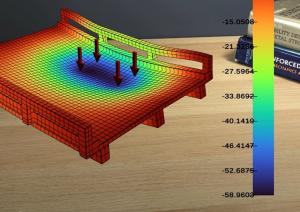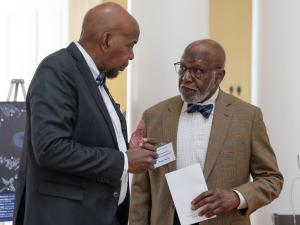Devin K. Harris

About
Professor Harris is chair of the Department of Civil and Environmental Engineering at the University of Virginia. His research and teaching interests focus on large scale infrastructure systems with a primary focus on condition monitoring and system performance. His research leverages image-based measurement techniques, simulation, visualization, and data analytics with applications in the areas of structural health monitoring, smart cities, and digital twins. Additional areas of focus include reinforced and prestressed concrete behavior, applications of innovative materials in civil infrastructure, and non-destructive evaluation. Dr. Harris’ research approach often utilizes a combination of laboratory and/or field investigations coupled with simulations.
Dr. Harris is an active member of in the American Concrete Institute (ACI), the Transportation Research Board (TRB), International Digital Image Correlation Society (IDICS), and the American Society of Engineering Education. He is also the former Director of the Center for Transportation Studies (CTS), as well as the former Faculty Director of the UVA Clark Scholars Program.
Education
Ph.D., Civil Engineering - Virginia Tech, 2007
M.S., Civil Engineering - Virginia Tech, 2004
B.S., Civil Engineering - University of Florida, 1999
"My research has direct real-world applications as my group strives to develop novel approaches to evaluate the performance of the built environment."
Research Interests
Selected Publications
Courses Taught
Awards
Featured Grants & Projects
Faculty Spotlight: Transportation Infrastructure

Devin Harris, professor and chair of civil and environmental engineering at the University of Virginia, talks about his research on large-scale infrastructure systems, condition monitoring and system performance.


